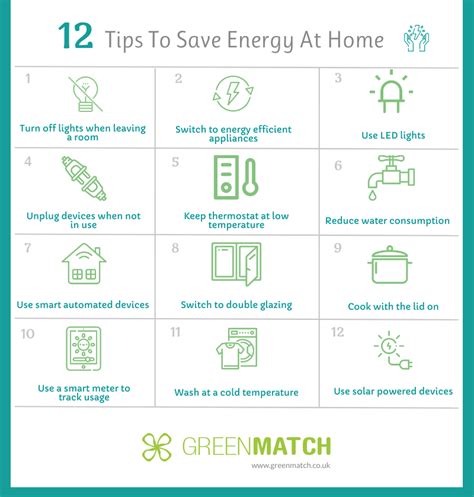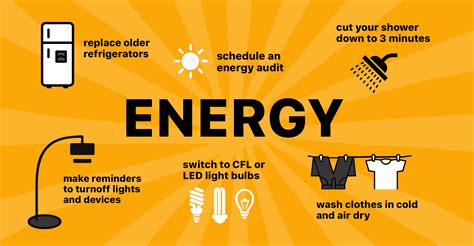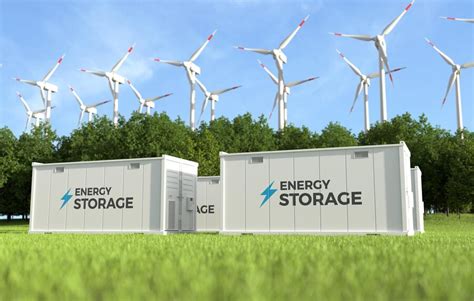New Jersey, known for its dense population and industrial activities, has been at the forefront of energy conservation efforts. The state has implemented various initiatives to reduce its carbon footprint and promote sustainable energy practices. From incentivizing renewable energy sources to implementing energy-efficient measures in buildings, New Jersey has taken a multifaceted approach to saving energy. This article will explore five ways New Jersey saves energy, highlighting the state's commitment to environmental sustainability and reduced energy consumption.
Key Points
- New Jersey's Renewable Portfolio Standard (RPS) aims to generate 50% of the state's electricity from renewable sources by 2030.
- The New Jersey Clean Energy Program offers incentives for residents and businesses to adopt energy-efficient measures and renewable energy systems.
- Building codes and energy-efficient design standards in New Jersey promote reduced energy consumption in new constructions and retrofits.
- Electric vehicle adoption is encouraged through incentives, such as tax credits and rebates, to reduce transportation-related energy consumption.
- Community-based initiatives, like the New Jersey Smart Growth Awards, recognize and support local efforts in sustainable development and energy conservation.
RPS and Renewable Energy Incentives

New Jersey’s Renewable Portfolio Standard (RPS) is a pivotal policy driving the state’s energy savings efforts. The RPS sets a goal of generating 50% of the state’s electricity from renewable sources by 2030, with a focus on solar and wind energy. To achieve this, the state offers various incentives for the development and installation of renewable energy systems. For instance, the New Jersey Clean Energy Program provides rebates and financing options for solar panel installations, making renewable energy more accessible to residents and businesses. As of 2022, New Jersey has seen a significant increase in solar energy production, with over 150,000 solar installations across the state, generating enough electricity to power approximately 250,000 homes.
Energy-Efficient Buildings and Designs
New Jersey has also focused on reducing energy consumption through building codes and energy-efficient design standards. The state’s building codes require new constructions and major renovations to meet specific energy efficiency standards, which include features like insulated windows, efficient HVAC systems, and energy-efficient lighting. Additionally, programs like the New Jersey Pay for Performance initiative offer financial incentives to building owners who achieve significant energy reductions through energy-efficient upgrades and operational changes. According to the U.S. Department of Energy, buildings in New Jersey account for approximately 40% of the state’s energy consumption, making energy-efficient buildings a critical component of the state’s energy savings strategy.
| Energy Efficiency Measure | Energy Savings Potential |
|---|---|
| LED Lighting | Up to 75% reduction in lighting energy use |
| Insulated Windows | Up to 30% reduction in heating and cooling energy use |
| Energy-Efficient HVAC Systems | Up to 20% reduction in heating and cooling energy use |

Electric Vehicle Incentives and Adoption

New Jersey is also promoting the adoption of electric vehicles (EVs) as a means to reduce energy consumption in the transportation sector. The state offers incentives such as tax credits and rebates for the purchase of EVs, as well as investments in EV charging infrastructure. The goal is to make EVs a more viable option for residents, thereby reducing the state’s reliance on fossil fuels and lowering greenhouse gas emissions. By 2025, New Jersey aims to have at least 330,000 EVs on the road, which would account for approximately 10% of the state’s registered vehicles. This initiative aligns with the state’s broader strategy to decrease energy consumption and mitigate climate change impacts.
Community-Based Initiatives and Smart Growth
At the local level, New Jersey supports community-based initiatives that prioritize sustainable development and energy conservation. The New Jersey Smart Growth Awards recognize and support projects that embody smart growth principles, including mixed-use development, walkability, and environmental sustainability. These initiatives not only contribute to energy savings but also enhance the quality of life for residents by creating more livable, sustainable communities. For example, the city of Hoboken has implemented a comprehensive sustainability plan, which includes initiatives like community solar programs, green infrastructure, and energy-efficient building retrofits, demonstrating the potential for local actions to contribute significantly to statewide energy goals.
What are the primary benefits of New Jersey's Renewable Portfolio Standard?
+The primary benefits of New Jersey's Renewable Portfolio Standard include reduced greenhouse gas emissions, increased energy security, and the creation of jobs in the renewable energy sector. By promoting the use of renewable energy sources, the RPS helps to decrease the state's reliance on fossil fuels, contributing to a cleaner environment and a more sustainable energy future.
How does New Jersey's energy efficiency program support businesses?
+New Jersey's energy efficiency program supports businesses through various incentives and technical assistance. The program offers rebates and financing options for energy-efficient upgrades, as well as energy audits and consulting services to help businesses identify and implement energy-saving opportunities. By reducing energy consumption and costs, businesses can improve their bottom line while contributing to the state's energy savings goals.
What role do community-based initiatives play in New Jersey's energy savings strategy?
+Community-based initiatives play a significant role in New Jersey's energy savings strategy by promoting sustainable development and energy conservation at the local level. These initiatives, such as the New Jersey Smart Growth Awards, recognize and support projects that embody smart growth principles, including mixed-use development, walkability, and environmental sustainability. By encouraging community engagement and local action, New Jersey can leverage the collective efforts of its residents, businesses, and communities to achieve its statewide energy goals.
In conclusion, New Jersey’s approach to saving energy is multifaceted and comprehensive, involving a range of strategies from renewable energy incentives and energy-efficient buildings to electric vehicle adoption and community-based initiatives. Through these efforts, the state aims to reduce its energy consumption, promote sustainable development, and contribute to a cleaner, more environmentally sustainable future. As the state continues to evolve and grow, its commitment to energy savings will remain a critical component of its environmental and economic policies, ensuring a prosperous and sustainable future for its residents.



